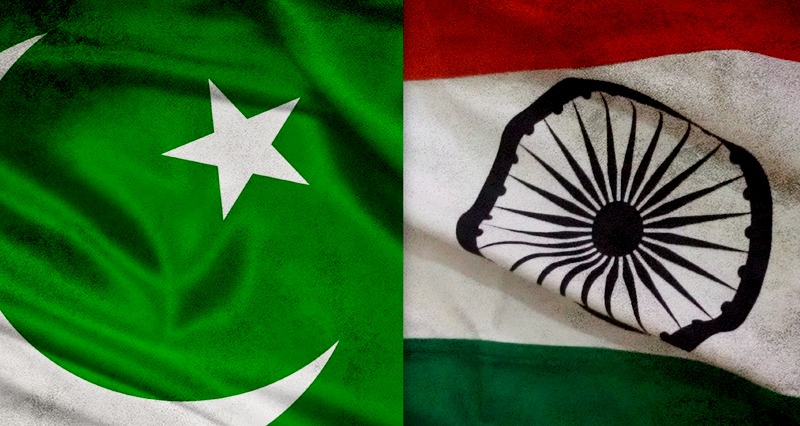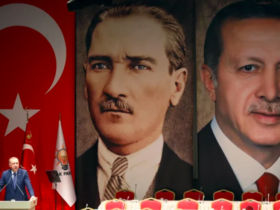Pakistan’s announcement that they had downed two Indian aircrafts shocked the world. The increasingly serious mutual threats of the nuclear-armed enemy nations are naturally the entire world’s concern, and public attention has been riveted to the decisions made by Indian and Pakistani leadership.
Turkey’s Foreign Minister Mevlüt Çavuşoğlu stated extreme concern over the escalation of tensions: “We are very concerned about the deterioration of relations between India and Pakistan and we appeal to both sides not to lose their sanity. It is critical to avoid further escalation. Kashmir is a perennial problem, and it needs to be solved as soon as possible within the framework of international norms. We are ready to contribute to the settlement of the situation because such tension affects not only the two countries but also the entire region.”
Turkey and the EU have called on both sides to exercise “restraint and prudence.” Pakistani Foreign Minister Shah Mahmood Qureshi held talks with his Turkish counterpart Mevlüt Çavuşoğlu and US Secretary of State Mike Pompeo.
INDIA AND PAKISTAN CLOSE THEIR AIRSPACE
After both country’s shot down a jets from the other side, India and Pakistan closed airspace over border areas to international flights. Indian authorities informed airlines that the Jammu and Kashmir airports would be shut down entirely. According to airline representatives, “until further notice”, flights to Jammu, Srinagar, Leh, Amritsar, Pathankot, Chandigarh, Dehradun and Dharamshala are suspended. In turn, Pakistan has suspended domestic and international flights from the airports of Lahore, Multan, Faisalabad, Sialkot and Islamabad.
DOWNED INDIAN PILOT CAPTURED
Pakistani military commanders announced they had caught the pilot of the Indian plane that had been shot down over Pakistan for violating their airspace. The military released video footage taken during the Pilot’s detention. The video shows the pilot being interrogated with a blindfold on.
“WE DO NOT WANT A WAR”
Asif Ghafoor of the Pakistani Armed Forces discussed the country’s decision to take down the Indian aircrafts: “We have the power to take any step, but we don’t want to escalate tensions in relations (with India), we don’t want war. Today’s operation had defensive objectives, we don’t intend to triumph. ”
“Two [Indian] aircraft were shot down. One of them fell on the Indian side of Kashmir, the other on the Pakistani side. Two pilots were arrested. One of them was injured and was taken to a military hospital. He will be provided with the necessary medical care. The other pilot is in custody,” Ghafoor continued.
“Despite the fact that we have all the resources to fix and strike at targets, we carried out the strike in such a way as to prevent human casualties. During the operation, no one was killed. We adhere to a responsible approach and advocate peace. The Pakistan Air Force had no choice but to strike back. Pakistan does not want a military development of the situation. Now the ball is in the Indian field, they must determine the future of this region. India needs to understand that war is a policy doomed to failure.”
He claimed to have no information about the plane that had been shot down in India.
TIMEFRAME OF NEW TENSIONS
The latest escalation in tensions began two weeks ago.
On February 26, Indian authorities declared that they had attacked a camp of militants from the Jaish-e-Mohammed group in Pakistan. Jaish-e-Mohammed had claimed responsibility for a terrorist attack in Kashmir on 14 February which killed 44 Indian police and injured 20.
In response, Indian authorities reported that their fighter jets had hit Jaish-e-Mohammed training camps in the Pakistan-controlled part of Kashmir. At the same time, Major General Asif Ghafoor, the spokesman for the Pakistani armed forces, claimed that Pakistan’s airspace had been violated by Indian military aircraft from the Muzaffarabad area. According to Ghafoor, one of the Indian planes which had penetrated deep into Pakistani territory tried to break away from pursuing Pakistani jets and hurriedly dropped bombs near the border area of Balakot. Ghafoor showed photos of the territory on which the bomb fell, as well as the remains of a shell, and said that no one was injured in the explosion.
PEACE PROCESS INTERRUPTED
A representative of the Taliban says that the conflict between India and Pakistan will have a negative impact on the peace process in Afghanistan and may even lead to its suspension.
KASHMIR QUESTION
In 1947, in territory formerly controlled by the British empire, two states were formed – the Indian Union and Pakistan. The division of the territories was based on religion: provinces with a predominantly Muslim population were ceded to Pakistan, and with a Hindu majority – to India. One of the controversial issues was the territorial affiliation of the principality of Jammu and Kashmir, populated mainly by Muslims.
In accordance with the partition plan provided for in the Indian Independence Act of 1947, Kashmir had the right to join either India or Pakistan. The ruler of the principality, being a Hindu, refused to hold a plebiscite and annexed Jammu and Kashmir to India. This decision led to dissatisfaction with the leadership of Pakistan and the introduction of troops into the territory of the principality.
As a result, the Pakistani and Indian military started a war in the region. In 1947, the first military clash occurred between the two countries. This was followed by two more Indo-Pakistani wars – in 1965 and 1999.
Currently, 45 percent of the territory of Kashmir is controlled by India and 35 percent – by Pakistan. The remaining 20 percent is influenced by China. The Indian-controlled region is called Jammu and Kashmir and is still the only Indian state where the majority of the population is Muslim. The Pakistani part of Kashmir is called the Gilgit-Baltistan region or Azad Kashmir (Independent Kashmir) and has the status of autonomy.
UN Security Council resolutions adopted since 1948 have provided for the withdrawal of military contingents from Kashmir and the determination of the future of the region through a plebiscite. While India opposes holding a referendum, Pakistan insists on the need to implement the decisions of the UN Security Council.

















Leave a Reply